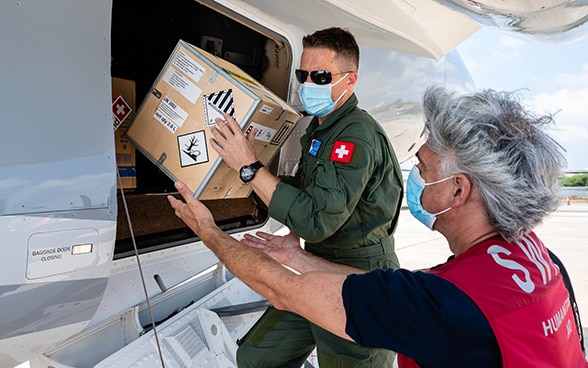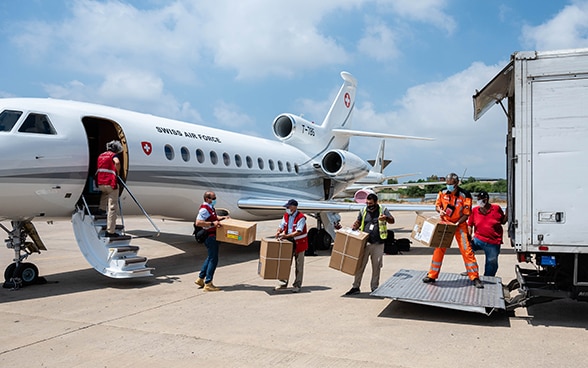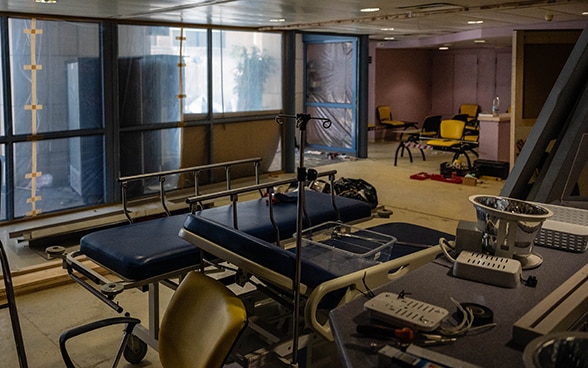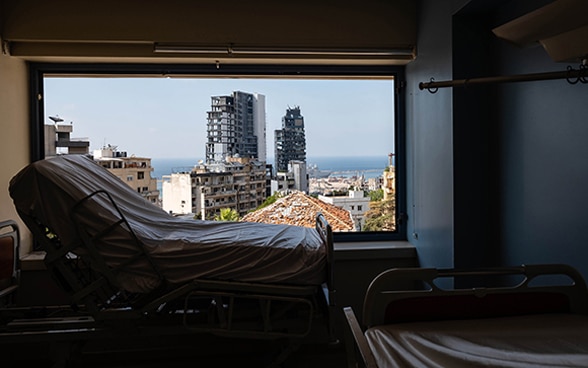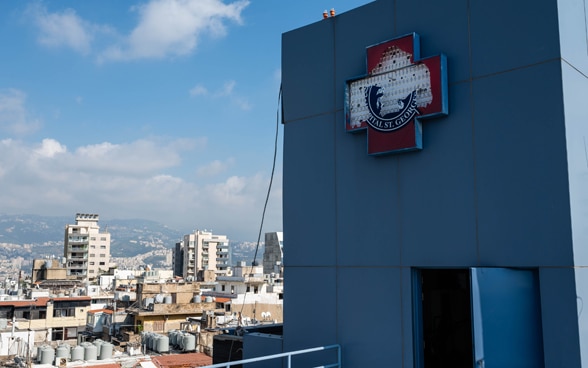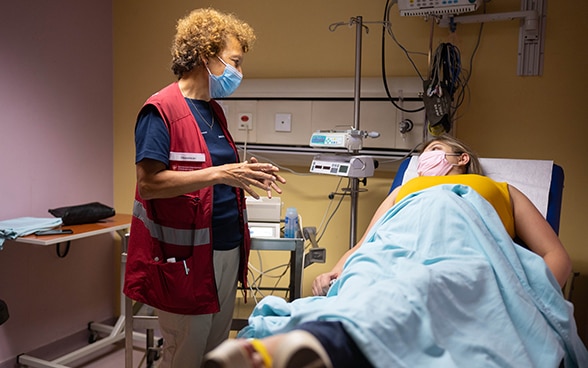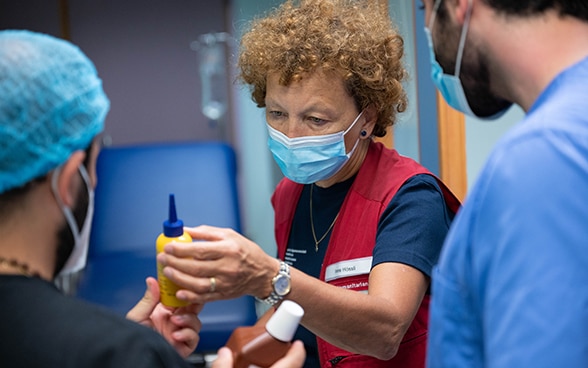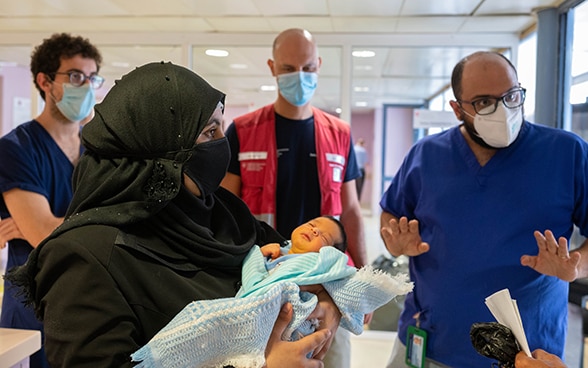Beirut explosion: Switzerland's emergency aid focuses on health and building safety
The immense scale of the explosion in the Lebanese capital on 4 August 2020 has severely affected the country's health system. On 13 and 14 August 2020, the Federal Department of Foreign Affairs sent more Swiss Humanitarian Aid Unit experts to Beirut. Switzerland is focusing on health needs and the structural integrity of buildings damaged in the explosion.
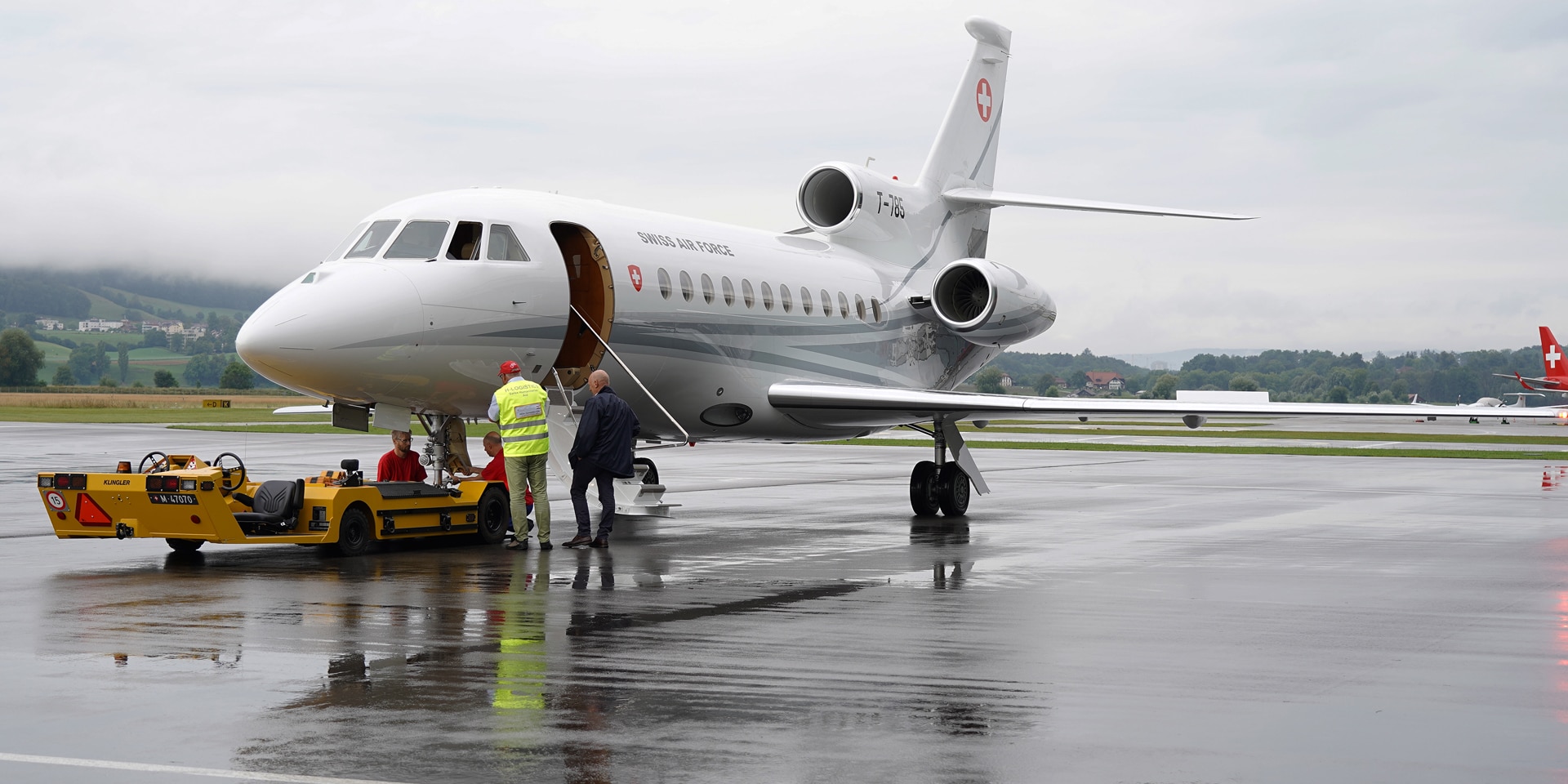
Manuel Bessler, head of Swiss Humanitarian Aid, and a logistics expert standing in front of the aircraft shortly before departure for Beirut. © FDFA
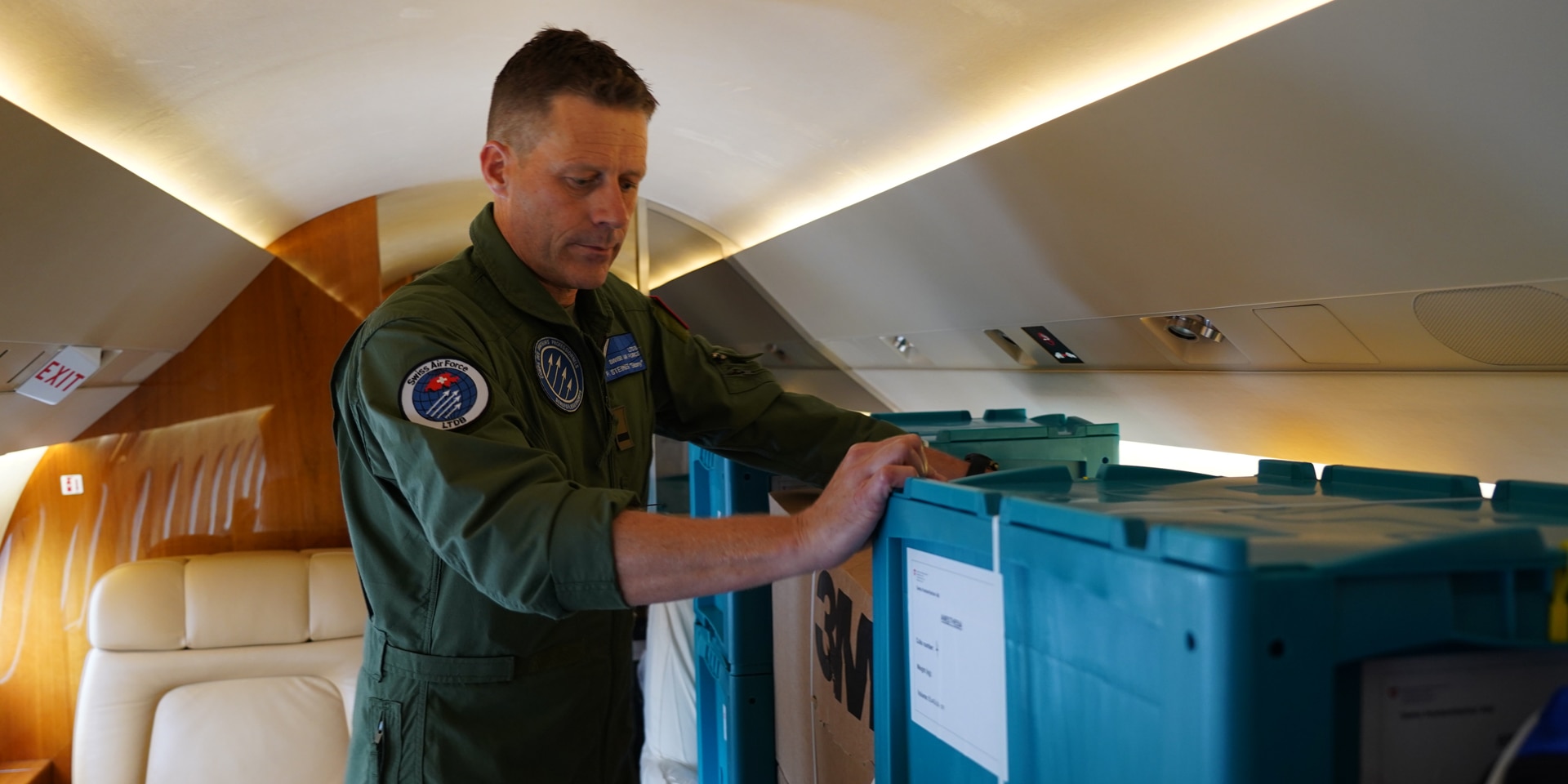
14 August 2020, 7.30am: Bern's local airport nestles peacefully in the divide between the Aare and Gürbetal valleys. The sky above the nearby Gurten and Längenberg hills is overcast. The weather is cool and damp. A hangar next to the runway is bustling with activity. Swiss Humanitarian Aid members kitted out in fluorescent yellow vests are busy loading box after box onto a Federal Air Transport Service aircraft. The boxes contain supplies for their 'mother and child module'. At 8.15am, the anaesthetist and logistics expert from the Swiss Humanitarian Aid Unit (SHA) take off for Beirut. The other four SHA members already left from Geneva the night before.
Swiss Humanitarian Aid's two lines of action in Beirut
The explosion which occurred in Beirut on 4 August 2020 was huge. "For our response to the devastating explosion in Lebanon, we have established two lines of action. The first is health and the second is the renovation of school buildings", explains Manuel Bessler, head of Swiss Humanitarian Aid, standing on the tarmac at Bern-Belp airport.
Health system severely affected by explosion
The shock wave caused by the explosion damaged a large number of the city's hospitals. Four hospitals were severely affected and there is now a shortage of 500 beds which are urgently needed. Switzerland is therefore sending a 'mother and child module' to Beirut, which acts as a medical unit of the SHA. The module is made up of qualified paediatricians, anaesthetists, obstetricians, midwives and nurses who focus on performing operations for children and providing support during childbirth. "The mother and child module was developed after the earthquake in Haiti in 2014. We used it again in Nepal, and now in Lebanon. It's one of our lines of action. The other is repairing schools that were damaged in the blast", explains Bessler.
Damaged schools and hospitals
The shock wave caused by the explosion damaged countless buildings in the capital, including hospitals. An SHA construction expert in Beirut is currently overseeing the repair work on two hospitals, one of which will soon be able to start treating patients again. The Swiss team has already checked the structural integrity of more than 80 public buildings in the city.
Thousands of pupils to return to school
The explosion also damaged more than 120 schools. Repairing these schools is essential so that the thousands of children and young people who have been affected can continue their education. With Switzerland's support, six schools should be ready by the start of the new school term in September.
CHF 5 million for the people of Beirut
Switzerland responded quickly to the humanitarian emergency caused by the explosion. Of the CHF 5 million in relief aid released by Federal Councillor Ignazio Cassis, CHF 4 million has been allocated to the city's schools and health facilities. The remaining CHF 1 million will be halved between the Lebanese Red Cross and the International Federation of Red Cross and Red Crescent Societies (IFRC).
Swiss Humanitarian Aid
Swiss Humanitarian Aid acts before, during and after conflicts, crises and natural disasters to serve the interests of people in need. It focuses on the reconstruction and rehabilitation of affected areas, disaster risk reduction, the protection of vulnerable people and emergency relief efforts. Swiss Humanitarian Aid is part of the Swiss Agency for Development and Cooperation (SDC) within the Federal Department of Foreign Affairs (FDFA).

